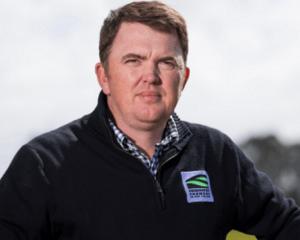
It comes as Act steps up its criticism of the Government’s attempts to price emissions in the agriculture sector, with former Federated Farmers president Andrew Hoggard recently announcing his candidacy for the party.
National has long backed the primary sector-led group He Waka Eke Noa - which includes the likes of Dairy NZ, Federated Farmers and Beef and Lamb - which was set up to develop with the Government a world-first “split-gas” pricing scheme to include agriculture within the Emissions Trading Scheme (ETS) by 2025.
Its support was in line with the bipartisan approach the two major parties have taken on major climate change initiatives including the Zero Carbon Act.
The aim of the ETS is to essentially price climate change pollution, and in doing so help bring down the country’s emissions overall to reach net carbon zero by 2050 and as part of global efforts to keep global warming below 1.5C.
The scheme, introduced in 2008, included a carve-out for agriculture, which acknowledged mitigation and offsetting of carbon was much simpler than for gases such as biogenic methane emitted from livestock and nitrous oxide (fertiliser and excrement).
Negotiations, however, have stalled after the Government last year rejected the group’s original proposal, with concerns about sequestration - accounting for offsets such as native forest - and how the price is set.
In December, the Government responded to criticism from farmers at an earlier proposal and said final decisions would be made and legislation introduced by the middle of this year.
However, there has been no progress since and concerns are growing time is running out for final decisions to be made on agricultural emissions pricing before Parliament’s last sitting day on August 31.
Last year, National said it backed He Waka Eke Noa’s proposal over what the Government had come up with.
Now, National’s agriculture spokesperson Todd McClay said it was clear He Waka Eke Noa in itself was “dead”.
“It’s the Government’s fault. They’ve run out of time, they’ve shown extremely bad faith to the sector.”
McClay said aspects of the initiative were important, and had informed National’s approach to the issue.
He said National supported pricing agricultural emissions but not in a way that could lower production here and shift it overseas.
“The Government turned its back on that. We’ll be putting out a policy that shows we back farmers, that we support what they do, that we won’t drive them out of business or put up the cost of food, but we’ll also meet our obligations internationally.”
Asked about the 2025 timeframe and backstop of including agriculture in the ETS if no solution was found by then, McClay declined to comment only saying it would be addressed in upcoming policy.
Act Party primary industries spokesman Mark Cameron said his party had always opposed He Waka Eke Noa, saying New Zealand farmers were already the most efficient in the world.
Act has proposed tying an emissions price to the country’s five main trading partners to ensure a level playing field for growers and producers competing overseas.
They would also make it simpler to adopt emissions-reducing technologies and increase the ability to offset emissions.
Federated Farmers Wayne Langford acting president told the Herald that He Waka Eke Noa was “sleepy, not dead”.
He said after a lot of work last year the Government had gone “extremely quiet”.
“If the Government wants a result they need to come back to the table and have discussions.”
Langford said their major concerns remained around sequestration and emissions leakage.
Beef and Lamb chairwoman Kate Acland told The New Zealand Herald they were still committed to He Waka Eke Noa but believed the current framework proposed by the Government disproportionately affected sheep and beef farmers.
They felt methane targets were too high and wanted more research on reporting and measuring its impact. They were also concerned about a lack of options for farmers to be able to offset and reduce their emissions.
Agriculture Minister Damien O’Connor was unavailable for an interview but said last week he was still committed to working with He Waka Eke Noa while accepting “hard questions” need to be answered.
It was still the Government’s intention to have an emissions pricing plan ready before Parliament wrapped up but they were also considering interim options that would raise funds for research and development, particularly to help answer questions around on-farm sequestration, which essentially means offsetting emissions.
O’Connor confirmed he had discussions with the sector about a fertiliser levy to fund such research, but this had been strongly rejected.
A levy would have applied per tonne of fertiliser, of which farmers use more than 400,000 tonnes a year.















